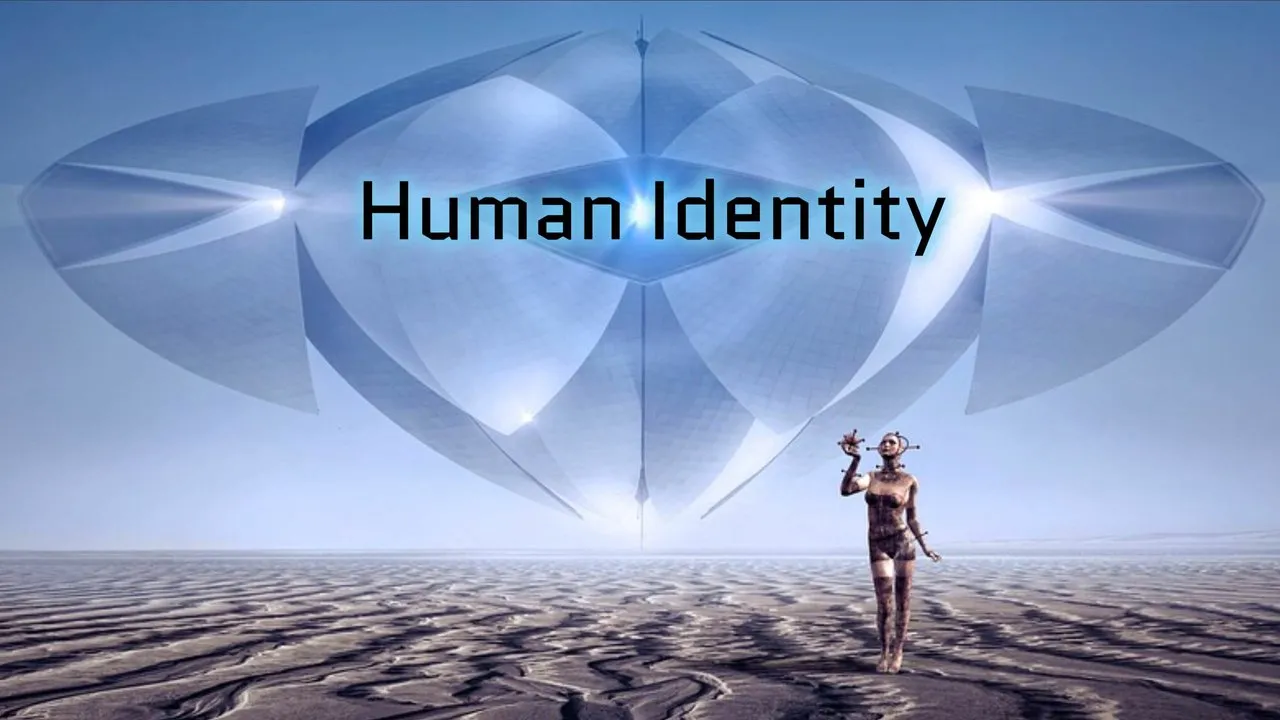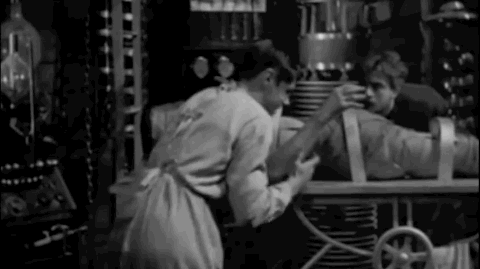
What makes up the human identity?
The basics of human identity can be broken down in many categories:
- Cultural identity
- National identity
- Identity identification with the profession
- Gender, sex, sexual identity
- Religious identity
- Ethnic identity
- Identification with the conviction of identity
Perhaps a little confusion happens when we conflate identity with personality, however, a helpful distinction is that identity is shared with others while personality is not shared with others.
If we draw upon the above list of where human identity is pulled from in a lifetime, we can clearly see that identity is a mixture of these sources. These create our mindset, values, behavior, skills, attitude and external appearance . We might also add an additional layer under the social setting of childhood experience, family and social backgrounds.
Therefore, we can be fairly certain that a person's 'identity' becomes unique to them - a unique fingerprint, if you will.
To look at human identity from a scientific/academic viewpoint, this field of study primarily falls under the liberal arts field. Within this field of study, there are several sub-fields that make up individual branches of research and study.
(1) somatic field; (2) psychological field; (3) social field and (4) intellectual field
Of these four sub-fields, I am most fascinated with the aspect of 'soma' or the somatic field of study.
Somatics is the field which studies the soma: namely, the body as perceived from within by first-person perception. When a human being is observed from the outside -- i.e., from a third-person viewpoint-the phenomenon of a human body is perceived. But, when this same human being is observed from the first-person viewpoint of his own proprioceptive senses, a categorically different phenomenon is perceived: the human soma.
Source
Much research and the study of human identity is from the 'third person' point of view. That is to say, from an observers lens from the outside. As I stated before, our individual identities are 'unique fingerprints' so I find a one size fits all list of categories in which to place the human being rather small-minded and limiting in scope. In other words, WE ARE NOT ROBOTS. This is a major contention that I have regarding those that consider themselves 'professionals' and their analysis of what makes a human being tick.
You also have to consider that the first person view of one's self is fundamentally different from the perceptionally limited view of the third person observation from the outside. Completely different realities.
For instance, the medical practitioner observes a person from a third person point of view and sees a patient.
This propagates viewing a person as an object in which to observe, analyze and measure just like any other scientific subject or object which can lead to misunderstandings in physiology, psychology, and medicine.
WE ARE NOT ROBOTS
When we play the role of scientist and observe a rock, nothing thereby changes for the rock. But the soma that is being observed is not only aware of itself through self-observation but it is also simultaneously in the process of modifying itself before the observer's eyes.
In fact, to look at a human being any differently other than somatically, is to lose sight of the main emphasis of human evolution through self discovery and regulation. It is missing the point to 'life'. After all, this is one distinction humanity has over most other creatures - our ability of focused awareness, self regulation and modification.
The way a scientist sees the human being:
I would say the core of human identity is the BRAIN. If you transplant a body to a head the identity will be that of the head. ~ Dr. Gonzalez-Toledo

This mindset, of course, gives way to a very controversial addendum to human identity in the way of 'post-humanism' or rather the more recognized term, 'trans-humanism'.
According to encyclopedia.com, the following offers a summation of this ideological and emerging addendum or what I sometimes refer to it as Humanity 2.0.:
The post-humanist (sometimes called trans-humanist) views human dignity as a matter of seizing the opportunity to modify and enhance human nature in ways that include the deceleration or arresting of aging, genetic engineering, the bodily introduction of nanotechnology and cybernetics, reproductive cloning, and even the downloading of mind into immortalizing computers.

Post-humanism might have some valid and thoughtful points that could be positive. Could be! However, the implications for this transition would affect human identity in profound ways.
How does this relate to identity?
Consider these changes:
- Expanded lifespan or decreased lifespan
- Increased IQ, decreased IQ
- Cure for most (if not all diseases)
- Immunity for disease, non-immunity to disease
- Creative acceleration, non-acceleration or absence of creativity
- Customized genetic encoding
- Turning genes on and off
- Economics, industries
- Newly emerging social, educational, governmental systems
- Space exploration
Francis Fukuyama, proposed in his 2002 book, "Our Post-human Future: Consequences of the Biotechnology Revolution', that this would involve the inevitable commercialization of biotechnological innovations that could lead to terrible outcomes and worrisome human enhancements.
Francis Fukuyama argues that as a result of bio-medical advances, we are facing the possibility of a future in which our humanity itself will be altered beyond recognition. Fukuyama sketches a brief history of man's changing understanding of human nature: from Plato and Aristotle's belief that humans had "natural ends" to the ideals of utopians and dictators of the modern age who sought to remake mankind for ideological ends. Fukuyama argues that the ability to manipulate the DNA of all of one person's descendants will have profound, and potentially terrible, consequences for our political order, even if undertaken with the best of intentions.
One such technology which is gaining interest worldwide, is CRISPR. I highly recommend readers research this further in order to understand the scope of what this technology is and the implications of its use by an unregulated movement. At present, this is easily accessed and available for experimentation for anyone with a lab.
At what point does a human stop being a human?
Does scientific advancement necessarily improve the human condition or does it hinder it? Does this further the concept of the 'haves and the have nots'? Do more questions and problems arise and what of the consequences of altering humankind's identity in the constructs of historical bias largely dreamed up by a third person point of view without consequential accountability?
One can certainly conclude that since 1973 when the human genome code was cracked, we've been on this steady course moving toward a post-human future.
In fact, it might just be here now!
Gene-Edited Babies Reportedly Born in China. What Could Go Wrong?
As this is a largely unregulated and now cheap technology, we should look deeper into this migration and educate ourselves on the implications that will arise in way of cultural manifestations and moral perspectives. After all, technology is perpetually an assault on nature since it always involves its alteration through destruction.
However, I do see it's necessity in the advancement of humanity. For example, space exploration, cures for disease and mitigating the downward trend of human intelligence (IQ have starkly taken a hit). Just not the ideology that frames our use of it as an artifact that causes more harm than good.
“It has become appallingly obvious that our technology has exceeded our humanity”–Albert Einstein

Given that the preceding explanation of human identity is primarily from a third person point of view utilizing the reductionist approach, let's dig a little deeper into the more interesting and inspiring first person, or somatic field view of human identity.
There is a general consensus among biologists that the body of an animal is being held up by muscles, bones, tendons, etc. However, there is an ever-growing body of evidence that would prove otherwise, or at least that this is only a small part of the whole.
Something that struck me as especially powerful was this statement in opposition to this consensus.
Despite the presence of these anatomical parts, without consciousness, the body will collapse on the ground. Hence, consciousness is a force within the body and only when it is conscious it will stand up and perform its usual activities. The moment consciousness leaves, the body collapses. The concept of awareness (an activity of consciousness) is of major interest for anesthesiologists, and in this branch of science, it is believed that unconsciousness brings the forgetfulness of pain. However, when patients undergo deep ether anesthesia, on recovery, some could not recall their surgery or the discussion, but some develop new psychological symptoms. In a while, after full recovery and under hypnosis, it is found that some patients recall the spoken word, identify speech, and interpret meaning. In some cases it may lead to life-threatening psychological trauma. In other words, in a living body, it is not just the molecules, bones, tissues and so forth that are all in all. The body has a foundation upon consciousness. ~ Bhakti Niskama, Ph.D
Further, Noble prize winner, Szent-Györgyi states:
I went from anatomy to the study of tissues, then to electron microscopy and chemistry, and finally to quantum mechanics. This downward journey through the scale of dimensions has its irony, for in my search for the secret of life, I ended up with atoms and electrons, which have no life at all. Somewhere along the line life has run out through my fingers. So, in my old age, I am now retracing my steps, trying to fight my way back.”
It would seem, at least from a somatic point of view, that we are not merely the sum of our parts but rather deriving life and identity from something far greater that seeps through all the layers that make up this human identity and mind. Something that animates this body and sparks the collaboration of chemicals and cells, bone and tissue that works cohesively. In fact, all living organisms share the same overtly noticeable goal-oriented activity (which includes self-determination, self-formation, self-preservation, self-reproduction, self-restitution). There is consciousness and awareness involved far beyond the basic tenants of
- Cultural identity
- National identity
- Identity identification with the profession
- Gender, sex, sexual identity
- Religious identity
- Ethnic identity
- Identification with the conviction of identity
Your conscious mind holds your wishes, desires and aspirations. That may or may not be in your current list of identifying personas - these are arbitrarily received in sometimes anonymous revelations that help to redirect our course in life.
What a gift Dr. Jill Bolte Taylor has given us in allowing us a glimpse from inside her mind as an observer of two separate realities we draw upon for our identity. One being the sum of our parts and limited sense of self derived from our environment and the other from something much greater, numinous, that simultaneously occupies this space and every living thing.
So who are we? We are the life force power of the universe, with manual dexterity and two cognitive minds. And we have the power to choose, moment by moment, who and how we want to be in the world. Right here right now, I can step into the consciousness of my right hemisphere where we are—I am—the life force power of the universe, and the life force power of the 50 trillion beautiful molecular geniuses that make up my form. At one with all that is. Or I can choose to step into the consciousness of my left hemisphere. where I become a single individual, a solid, separate from the flow, separate from you. I am Dr. Jill Bolte Taylor, intellectual, neuroanatomist. These are the “we” inside of me. ~ Dr. Jill Bolte Taylor
Personally, I don't think we can stave off the future of technological advancements and its effects on human identity. That genie is already out of the bottle, but it certainly does give us a lot to think about.

Additional Sources:
https://lucian.uchicago.edu/blogs/mediatheory/keywords/posthuman/
https://www.tandfonline.com/doi/full/10.1080/19420889.2015.1085138
Modified photos used:
This post on the topic of Identity is just another 'Drop In the Ocean' for the wonderful BuddyUP group